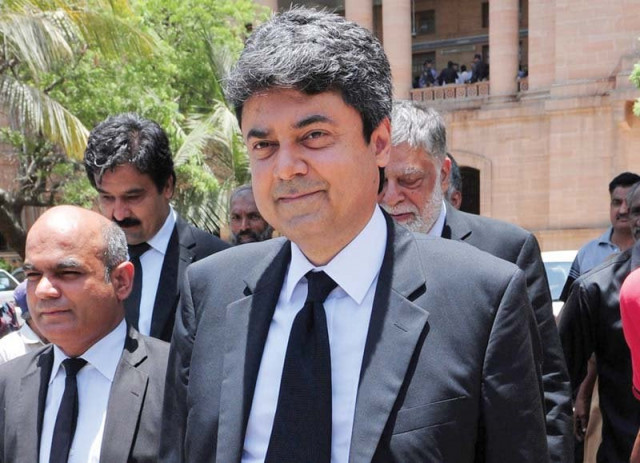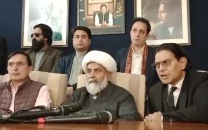Sindh ‘violated law’ in LB demarcation
Naseem tells bench MQM strongholds made part of large constituencies to reduce its strength in mayoral vote

The Muttahida Qaumi Movement (MQM) alleged on Monday that the Sindh government carried out delimitation of the local government constituencies in a way that reduced the voting strength in the election of the mayor of Karachi.
MQM’s lawyer Dr Farogh Naseem argued before a three-judge bench of the Supreme Court, led by Chief Justice Umar Ata Bandial, that the Sindh government had been given the authority to determine constituencies through a notification in violation of the law.
The apex court resumed MQM leaders’ petition against Sindh High Court (SHC) order. Dr Naseem shared charts in support of his arguments that constituencies, comprising places where MQM was popular, had been created on large population counts.
He pointed out that places that the areas where the MQM was popular had been made part of constituencies with 70,000 to 90,000 population, whereas the constituencies, where the petitioners had historically smaller vote bank, comprised 30,000-40,000 population count.
Naseem also stated that Sindh violated the Section 10(1) of the Sindh Local Government Act SLGA)-2013 whereby the provincial government, through a notification, was given the authority to determine basic constituencies of the union councils and committees, which constituted the electoral college for election of the mayor.
Naseem also contended that Section 10(1) of the SLGA conferred unbridled, arbitrary and unchecked powers on the government of Sindh to determine the number of constituencies, while no guidelines had been given as to how the power under Section 10(1) would be exercised.
“The creation of basic constituencies is nothing but the first step in the exercise of delimitation,” he said. “The creation/determination of the number of constituencies amount to demarcation or appointment or re districting or delimitation of constituencies,” he added.
“The creation of number of constituencies is a step anterior to actual poll. Therefore, even if it is held that the creation of constituencies is not part of the delimitation process, it is step towards holding of elections and hence it is ECP [Election Commission of Pakistan] alone which can perform such powers …”
Raising objections to the SHC decision, the lawyer for the MQM pointed out in his written submission that the high court had stated that no specific order of delimitation was challenged, adding however, that “this is factually and legally incorrect”.
He contended that the variation beyond the 10% under Section 20(3) in specific constituencies across the board were attacked. “However, in essence we had challenged the constitution of the delimitation committees which had nothing to do delimitation orders,” he added.
He submitted that the case of the petitioners was that the entire local government elections in Sindh were to be declared void and ultra vires and that fresh delimitation be carried out in Sindh. It also stated that the second phase of elections in Karachi, Hyderabad, Thatta and Badin had not been held.
Summing up his arguments, Dr Naseem contended that the SHC was incorrect to hold that the petitioners could not establish as what dominating role of the revenue officers, who were part of the delimitation committees had played. He added that there was no need to prove any dominating role, because the the delimitation committee was without jurisdiction.
During the hearing, an ECP official submitted that under the law, the commission followed the delimitation done by the Sindh government. Khalid Javed Khan will respond on the Farogh Naseem’s arguments on Tuesday (today).



















COMMENTS
Comments are moderated and generally will be posted if they are on-topic and not abusive.
For more information, please see our Comments FAQ